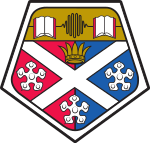
University of Strathclyde
About the Project
Technology-Enriched Intensive Rehabilitation University of Strathclyde
The project seeks to improve rehabilitation for stroke survivors with aphasia by integrating language intervention into physiotherapy exercise routines in the state-of-the art stroke rehabilitation centre at Strathclyde University. Through analysing existing physical rehabilitation technology equipment for their potential to improve language, the PhD candidate will design a new intervention, and evaluate its effectiveness by assessing language abilities before and after the intervention.
Project Details Stroke care is a priority policy issue in Scotland, with aphasia being a key focus in stroke rehabilitation as people with aphasia report greater impact on health-related quality of life, wellbeing and mood than individuals without post-stroke aphasia (e.g. Døli et al., 2017; Hilari, 2011). Speech and language therapy aimed at improving language and communication can effectively rehabilitate aphasia, if provided intensively.
The proposed project takes a novel approach to high-intensity aphasia intervention by maximising the benefits of joint rehabilitation and utilising existing resources. The PhD candidate will investigate whether language activities can be integrated into technology-based physical rehabilitation exercises, making use of the widespread gamification element of many rehabilitation technologies to improve language in people with aphasia.
Digital rehabilitation tools e.g. Virtual Reality (VR) often make the recovery process more interactive and engaging. The PhD candidate will analyse how these existing tools for physical rehabilitation can be used for language activities. Based on this, a novel intervention will be designed and evaluated. Following the intervention, people with aphasia and their carers will be interviewed to obtain their views on the intervention, and to determine whether this integrated approach to rehabilitation has a positive impact on language in stroke survivors with aphasia and their families. If successful, the study will be initial proof for a new method of intensive SLT rehabilitation.
The research will be carried out in the Sir Jules Thorn Centre for Co-Creation of Rehabilitation Technology located at the University of Strathclyde. The pioneering centre was set up in 2020 and harnesses state-of-the-art commercially available and prototype technology to design new techniques and systems to support stroke survivors in their rehabilitation journey. The student will join a group of rehabilitation researchers, including engineers, AHPs, and scientists all aiming to improve recovery after stroke.
To help us track our recruitment effort, please indicate in your email – cover/motivation letter where (globalvacancies.org) you saw this job posting.

